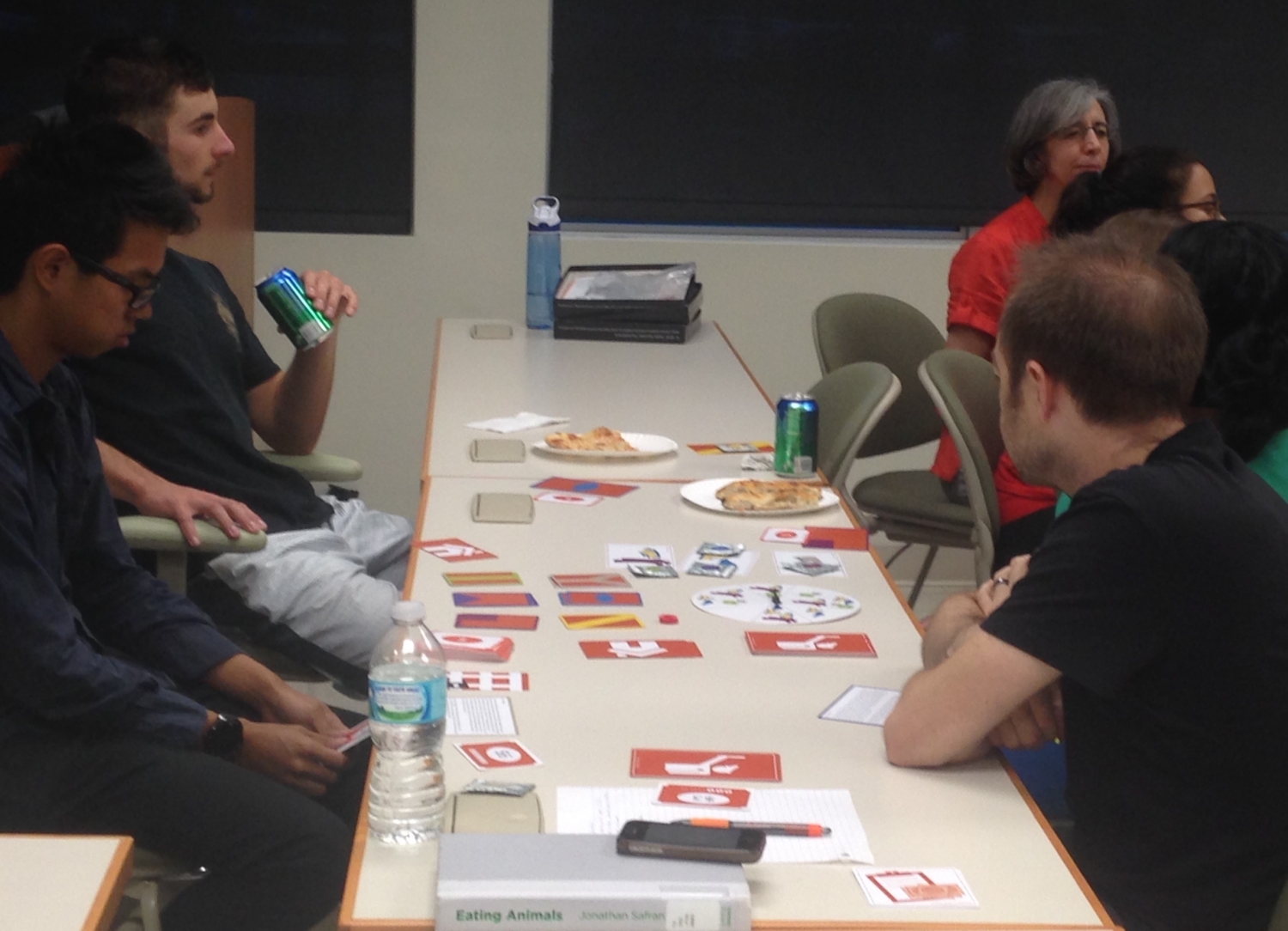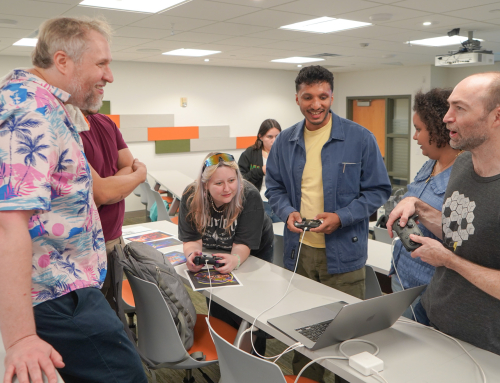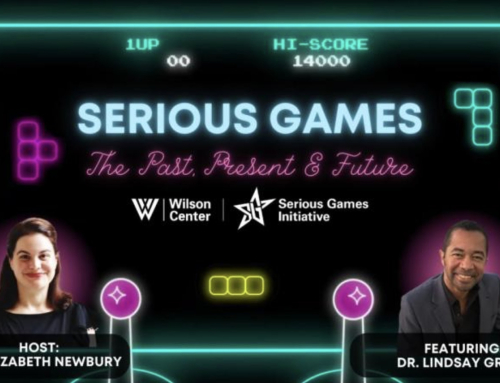Professor Lien Tran makes games for social change, a fun and interactive way to raise awareness for global issues. On March 24, Tran invited students and professors to play a game called “Cops and Rubbers,” which teaches about condoms being used as contraband in countries like South Africa, Russia, and the U.S.
In these countries, police use condoms as evidence that those carrying them are sex workers. This is a problem because it makes sex workers scared to carry around condoms, putting both them and their clients’ health at risk. A pamphlet handed out at the event stated at least 50% of sex workers surveyed in South Africa, Zimbabwe, Russia, Namibia, Russia, Kenya and the U.S. reported being harassed by police for being in possession of condoms.
The idea of the game is to put the players in the shoes of a sex worker. Up to six people can play at once, and each player chooses a card with a name, situation and reason he/she chooses to be a sex worker. Everyone has a common goal of earning $25 by the end of the game without getting a sexually transmitted infection.
The beginning of each round starts with the outreach workers either handing out condoms or not. If they are handed out, players have to choose where to hide them: underwear, shoes, or purse/wallet. A spinner is spun and if it lands on the picture of the place you hid the condom you receive a consequence card. Most consequence cards entail the scenario of being caught by a police officer with a condom and being accused of being a sex worker. You are then given the option of having unprotected sex with the officer or spending the night in jail and being unable to work that night. If you do consent to the officer, you pick up both an exposure token and a money card, which has a value of $3 – $9. If you do not receive a consequence card, you pick up a money card, as you were able to work for the night and use protection. At the end of the game, whoever has an exposure token picks a card from a full deck. If the suit on the card is the same as that of the “master card,” they have gotten an STI from having unprotected sex, as so many sex workers are forced to do.
“The goal of [Cops and Rubbers] is to raise awareness about the policy because a lot of people don’t know about it even when it’s an active policy in their backyard,” Tran said.
Tran said she hopes the game will get people to petition and put their support behind the decriminalization of condoms. Tran said that during a campus study of the game she found that people who play the game are more likely to oppose the policy compared to those who read the report because they are more connected to the policy and put themselves in the shoes of those who are affected by the policing practices. She gave this information to Open Society Foundations, an organization that is now funding an additional evaluation study this summer in Kenya, where there is an active policy for condoms as evidence of sex work.
The process of the policy being abolished is in different stages in different places. According to Tran, New York has passed the first stage of it being overturned.
“It’s still an active policy, but it’s one step closer to no longer being a policy,” Tran said.
Tran’s work paid off at the International AIDS Conference in July of 2012. She recalled asking this one woman to play the game, who ended up fully identifying with her character Jojo, a transgender sex worker in her late 20s.
“She flipped over the first card and she was like this is my age, this is my gender identification, this is my story,” Tran said.
Tran said that the woman played the game making the choices that she would in real life, which for her was being very risky. She ended the game with five exposure tokens and did not get a sexually transmitted infection.
“She was like that is my life,” Tran said.
According to Tran, this was a really rewarding experience for her because she is an outsider in this situation and it takes a lot of work to strike the right balance between getting the message across to other outsiders who are playing the game while being true to the stories of the people who live through it.
“It’s pretty interesting that there’s a lot of probability and risk in the game and yet it just happened to align with her life,” Tran said.







